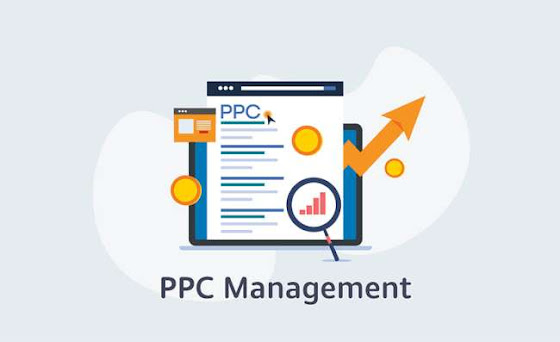What Exactly Is PPC Management?
PPC management is the oversight of a company's whole PPC ad strategy and budget by a marketer (or team of marketers). This can be done in-house by a team of marketers and media buyers, or by an outside agency.
A PPC expert (or agency) is often responsible for the following tasks:
Keyword research is the process of discovering and identifying the keywords that your target audience is searching for.
Channels to target: Choosing which paid media channels to pursue. Google Ads, Bing Ads, display networks, and even social media advertising are examples of these.
Analysis of the competition, including what they're doing, which keywords they're targeting, and the ad creative they're utilizing (to uncover gaps they can fill in on their own).
Campaign optimization entails keeping track of the campaign structure and optimizing it depending on the top performing keywords. For example, if 10% of keywords generate the majority of business, you may wish to prioritize those phrases in order to increase ROI.
Split tests: A/B testing of new advertising and landing pages is ongoing. Experiment on a regular basis across the full PPC Management Agency.
Not every company has the funds to engage an in-house PPC manager. As a result, hiring an agency may make more sense, especially if you're new to the world of PPC (and media buying in general) or don't have the in-house resources to handle it yourself.
Now that you understand what PPC management is, let's look at how to execute it well in these four main areas.
1. Establish Realistic and Data-Driven Goals
Clear roadmaps are the foundation of successful PPC campaigns. In other words, before you begin, you must know where you're going and what you want to accomplish.
The first step is to understand your critical business metrics. These metrics are as follows:
Customer Lifetime Value (CLV) (LTV)
Costs of Customer Acquisition (CAC)
Ad Spend Return (ROAS)
ROI (Return on Investment) (ROI)
Product Margins on Average Deal Size
2. PPC Structure: Pay Attention to Google, But Don't Follow
When preparing your PPC advertising, Google can be a valuable source of information. The issue is that your interests and theirs are not the same. Sure, the information they supply will make an excellent guide. However, you should not mindlessly follow them.
Yes, Google makes it very easy to get started (by assessing your website for prospective target keywords so you don't have to conduct the research yourself). However, it is intended to create as much revenue as possible for them.
3. Don't Be Afraid to Deplete Your Budget Early
Marketing is frequently a game of constant testing, especially when trying new things. Until you have some data to work with, you won't always hit home runs.
PPC management is no exception. When you start creating campaigns for yourself and your clients, you'll have to spend some money to see what works. But don't worry: if you do it correctly, you can make it all back with a good ROI.
4. Measure and optimize continuously to boost results
It is your responsibility to optimize your campaigns for long-term success after you have a solid long-term strategy in place. There are two approaches to this:
Increase the number of campaigns, ad groups, and target keywords in your PPC plan.
To improve performance, split test your existing assets. For increased success, each stage of your PPC marketing funnel can be optimized:
Test new keywords and compare their performance to current (but relevant) keywords. Test new ad variations with different headlines and description material. Split-test landing page elements like headlines and CTAs.
Conclusion
PPC management, as you can see, is a strategic undertaking, not a collection of growth hacks or a bag of tricks. Profitable Google Ad campaigns rely on data to inform, optimize, and expand over time.
This tutorial should set you on the path to profitable PPC management. Use the available data as well as what you collect over time to continuously boost your ROI.



Comments
Post a Comment